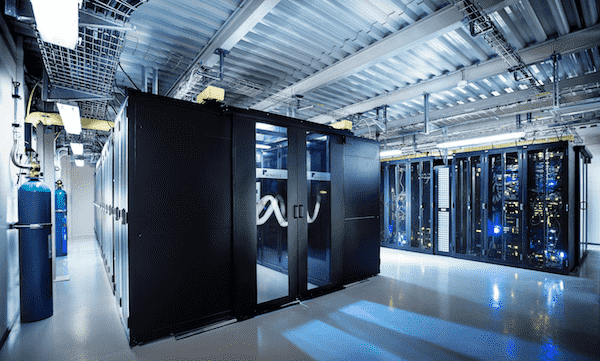If the threats of load shedding are increasing as winter approaches in France, data center players, whose job is to ensure the continuity of service of digital services, are at the forefront of energy-intensive industrialists. They are qualified as electro-intensive companies.
As part of the energy sobriety plan, it is planned to “limit the use of air conditioning in data centers, if the infrastructure allows it”. Note the “if the infrastructure allows it”, which ultimately leaves it up to everyone’s discretion to apply measures or not.
“A change from 21 to 23 degrees is likely to reduce energy consumption by around 7 to 10%”, specifies France Datacenter. What does not eat bread.
“We are at 24 degrees, with a contractual maximum of 28”
“We are seeing an evolution in the design of the room temperature, according to the recommendations of the Ashrae” indicated in 2019 Marie Chabanon, of DATA4, about the effects of heat waves on data centers. “The idea is to operate with much higher temperature ranges. We went from ranges of 20-22 degrees to 18-27 degrees. So we are at 24 degrees, with a contractual maximum of 28. »
So why these facade speeches? “Even though data consumption has multiplied by five in ten years, the energy consumption of data centers has only increased by 6% at the same time”, indicates France Datacenter. Understand that members already claim to do their part in terms of sobriety. “Similarly, the Power Usage Effectiveness of new datacenters has dropped drastically and is now around 1.3,” adds France Datacenter.
In addition, the share of data centers in the energy consumed for the digital sector is only 15%, for 20% for network use and 30% for digital devices (Green IT 2019 report).
In the end, data center players are not the most energy-intensive, and have already considerably optimized their equipment. There remains the question of rising energy costs. And there, the association relies on the public authorities.
Cost increases that could cost customers dearly
“The price of the electron is more volatile than ever, with a level of 500 euros per megawatt hour (a tenfold increase compared to 2021) and which could reach 1,000 euros in the months to come”, details France Datacenter, which adds: “The burden that energy represents in their operating costs, currently around 30%, threatens to rise to 50% – a burden that is difficult to sustain economically in the short term. »
And threaten. “Investment decisions risk being postponed or made in other countries where energy is cheaper, but unfortunately more carbon-intensive,” mentions France Datacenter.
So what is the solution advocated by France Datacenter? “These cost increases are now such that if nothing is done, they will be passed on to data center customers in a substantial way,” says the association.
The association also proposes that the public authorities take “stronger measures to contain the explosion of prices, by establishing a tariff shield on electricity for all companies and by increasing the volume of Arenh (regulated access to electricity). historical nuclear electricity) beyond its current ceiling for the year 2023, in line with prices which have increased tenfold”.
Note that this ceiling, of 120 terawatt hours for 2022, was only 100 terawatt hours until then. Requests to resonate with the production crisis affecting the French nuclear fleet at the moment.
